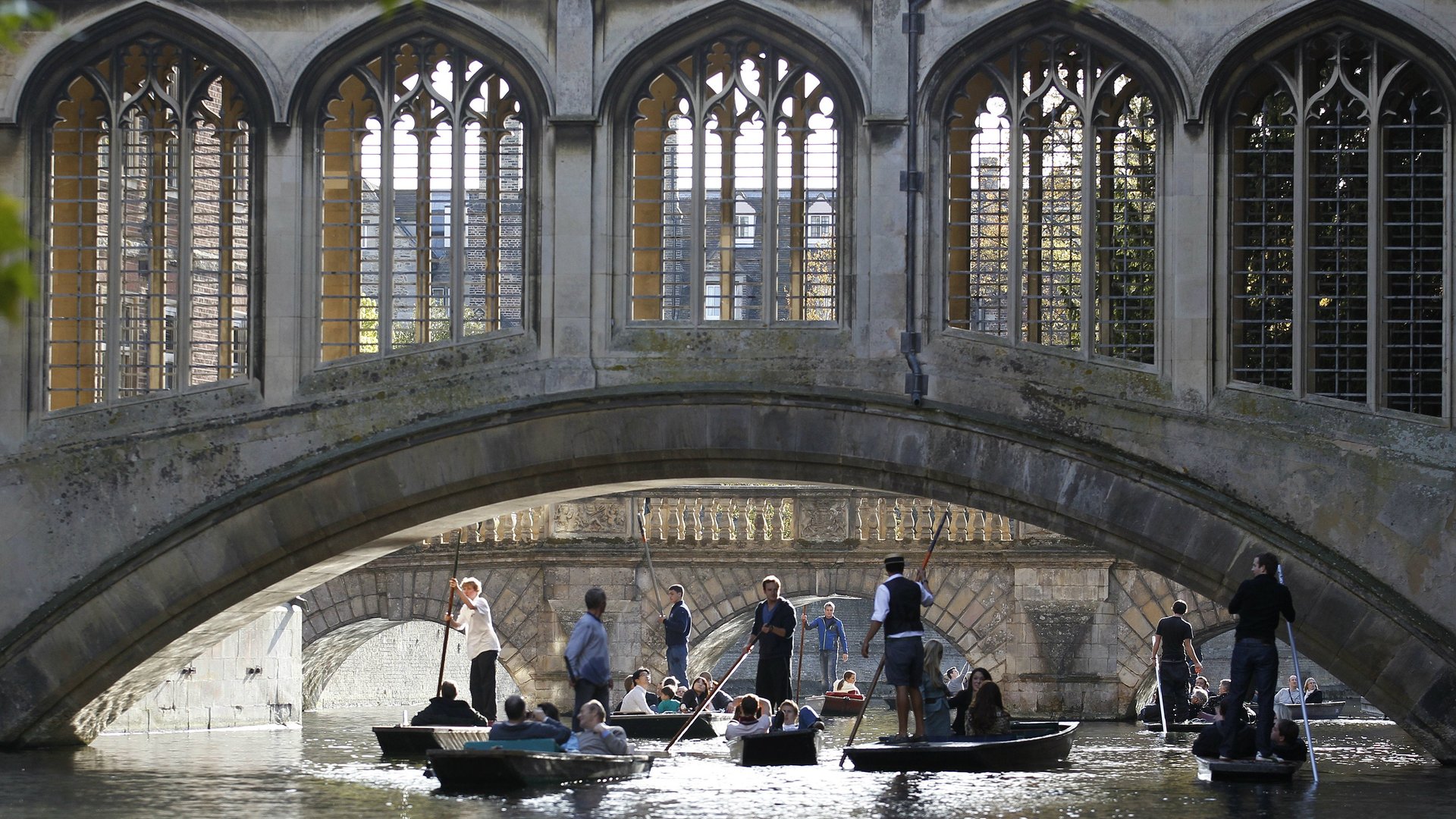Adding a written admissions test, Cambridge University makes it even harder to get in
Cambridge University, one of the world’s best universities, is introducing a written test as part of its application.


Cambridge University, one of the world’s best universities, is introducing a written test as part of its application.
If they make it that far, each applicant will be invited to take the test, tailored to their subject, as well as an in-person interview, starting from autumn 2017. Cambridge said it will provide “valuable additional evidence of our applicants’ academic abilities, knowledge base and potential to succeed in the Cambridge course.”
Sam Lucy, the university’s director of admissions, has described the move as an effort to “maintain the effectiveness and fairness” of their admissions system in a letter to British schools; the move is a direct response to the government’s overhaul of England’s examination system, which saw an exam usually taken between 16 and 18 years old disappear as a requirement.
While Cambridge is putting an even greater focus on academic performance, a number of America’s top universities are choosing to prioritize meaningful experience instead. A dean from MIT will take it a step further; Christine Ortiz plans to create a radical new university that does away with classrooms, lectures, and majors.
The English university is keen to thrive in the current competitive economic environment, which has seen a wave of mergers sweep through Europe’s higher education institutes. But will these admission tests create further barriers to improving access to non-white students? Last week, prime minister David Cameron slammed the UK’s top universities for not doing enough to widen participation and increase diversity (paywall), criticism that Cambridge and Oxford fiercely deny.
To tackle “unconscious bias,” the UK universities applications service will remove names from university applications from 2017. This follows earlier announcements that big employers, including HSBC, the BBC, and Deloitte, will recruit graduates on a “name blind” basis. Deloitte will not even see an applicant’s university—to better focus on their academic achievement.